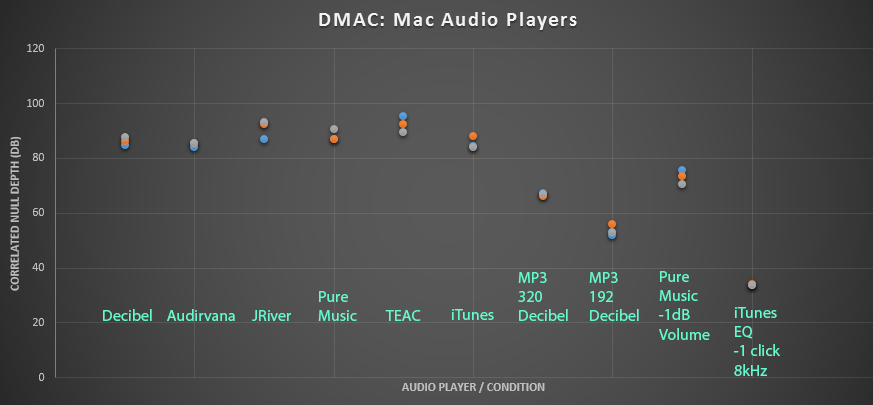Side to side tests with five different bit perfect players which all sound identical on 96 kHz 24 bit tracks vs Audirvana which offers heightened stereo separation (stereo processing) and slightly more presence (a subtle boost in the mid-treble) is nothing?
Publisher's own claim to improve the sound is nothing?
Guys are you too indolent to open up Audirvana and compare its output with a couple of other bit perfect players through your own DAC and amplification system (speaker or headphone, the effect is strong enough to hear even via speakers)? Or are you so untrusting of your own ears that you cannot do a simple AB test to check sound even against
distinctly audible difference?
I was looking for a player for HD files (in the end I decided I don't really care about playback of HD files, unless
offered affordably streamed, trialed Amazon HD, didn't like it, discovered and bought Primephonic for HD classical -
two month free trial;
half price first year while it lasts - which I really enjoy). For pop and folk, I'll stick to Spotify and deal with its sound limitations for now (apparently hires is coming). In fairness to Audirvana, the sweetening probably applies to CD and MP3 files as well (did not thoroughly test this, thoroughly tested hires PCM and DSD), thought the sweetening probably works best with higher quality masters (requires clean input).
If you
@Veri and several others run the side by side test and come back with input which differs from mine, i.e. you hear no difference between Audirvana and other bit perfect players (ideally you'd test against several to establish a reliable baseline), then it would be time to revisit Plisson's claim about improved sound quality and my confirmation of said claimed sound quality improvements in a field test.
If you also hear the same improvement I did, then it's time for someone who is set up to record back high resolution audio bit perfectly and diff the files to test several players vs Audirvana. This test involves recording back the output of actual HD music files at at least 96 kHz 24 bit, not some test tones at 44.1 kHz 16-bit. It requires pro gear and the attendant expertise.
I don't own Audirvana, my trial has expired and I'm not set up to do that high resolution recording right now so I won't be able to do that part of the test for you. Sorry.


